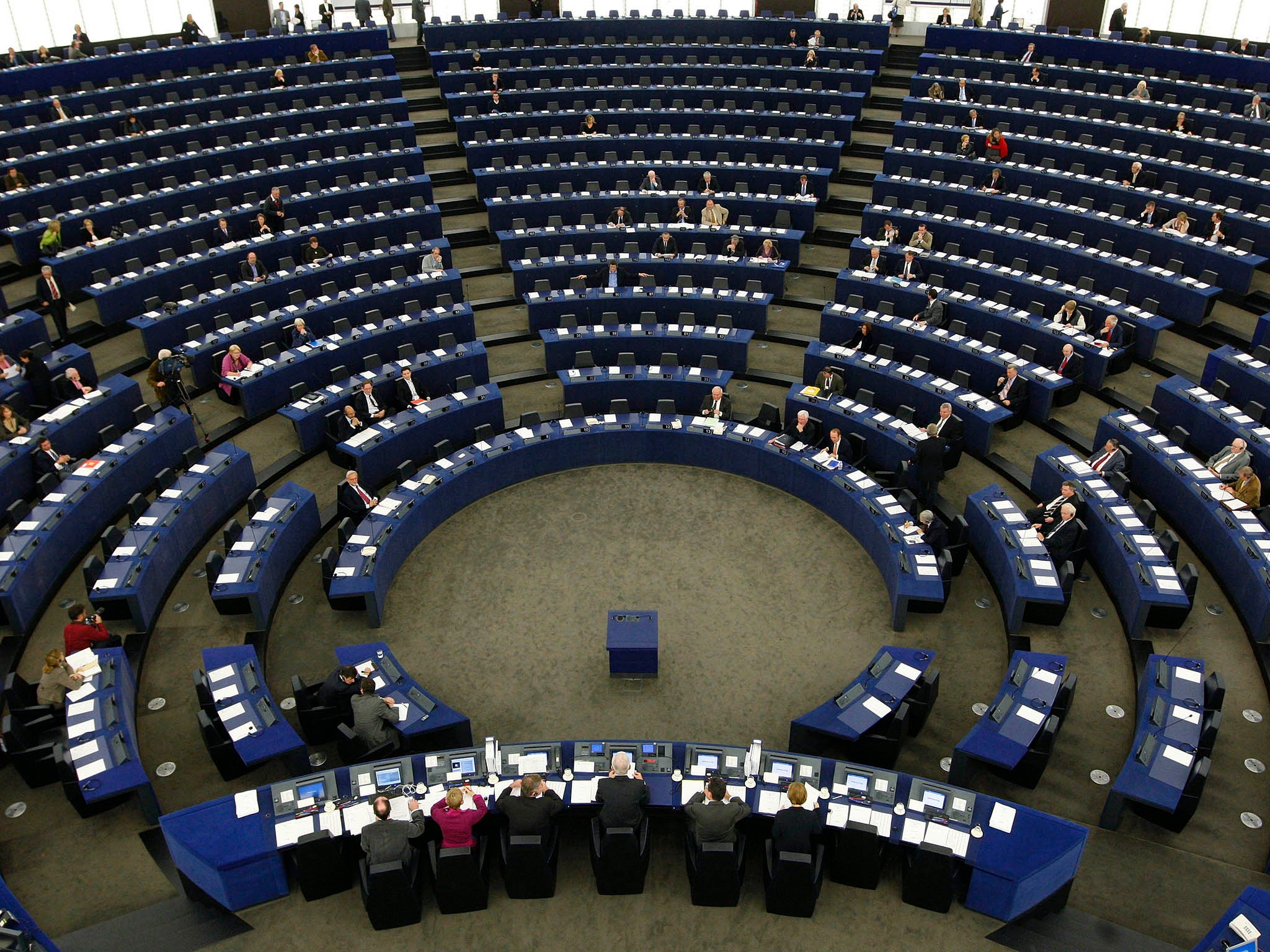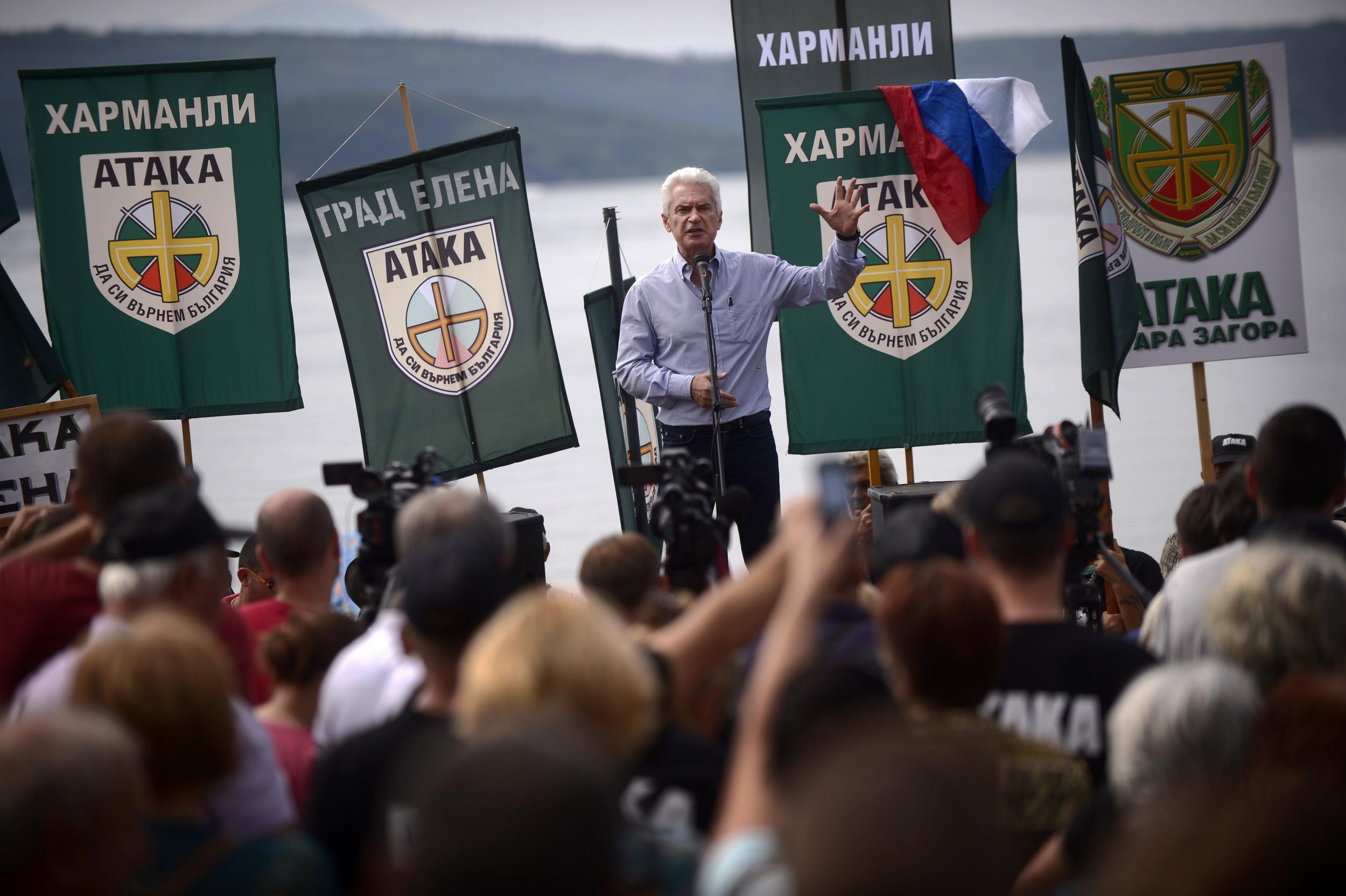Tories' right-wing EU allies call for ban on new mosques and military action against Slovenia
Parties with extreme views from Bulgaria to Denmark are members of a group founded by the Tories in 2009

Your support helps us to tell the story
From reproductive rights to climate change to Big Tech, The Independent is on the ground when the story is developing. Whether it's investigating the financials of Elon Musk's pro-Trump PAC or producing our latest documentary, 'The A Word', which shines a light on the American women fighting for reproductive rights, we know how important it is to parse out the facts from the messaging.
At such a critical moment in US history, we need reporters on the ground. Your donation allows us to keep sending journalists to speak to both sides of the story.
The Independent is trusted by Americans across the entire political spectrum. And unlike many other quality news outlets, we choose not to lock Americans out of our reporting and analysis with paywalls. We believe quality journalism should be available to everyone, paid for by those who can afford it.
Your support makes all the difference.The Conservatives’ right-wing allies in Europe have kicked off the New Year by calling for a ban on new mosques, urging military action against a fellow EU member state, and opposing moves to combat domestic violence.
The European Conservatives and Reformists group was set up by David Cameron in 2009 as a home for Tory MEPs in the European Parliament – but the extreme views of the other parties willing to follow the Tories into their new group have long proved embarrassing.
On Thursday the Danish People’s Party, which sits in the ECR with the Conservatives, unveiled a policy calling for a ban on the construction of new mosques, as part of a plan to tackle “ghettos” in the country. Other measures unveiled in the package include an 8pm curfew for young people.
Meanwhile in Croatia, an MEP from the ECR’s Croatian Conservative Party has called for military action against Slovenia, another EU member state, over a minor fishing rights dispute.
Ruža Tomašić wrote on her website on Thursday that Croatian “police, and even the army if necessary, should react” to plans by Slovenia to fine Croatian fisherman operating in disputed waters, adding that the dispute should be “handled with force” because of the precedent set by Slovenia. The two countries were involved in the Yugoslav wars as recently as the 1990s.
In Bulgaria, another ECR member, the far-right United Patriots Coalition, (which includes an explicitly racist party named “Attack”) has moved to oppose the government’s ratification of the Istanbul Convention on domestic violence.

United Patriots published a conspiracy theory-laden statement in opposition to the convention, arguing that “international lobbies are pushing Bulgaria to legalize the ‘third gender’” and that the measures would amount to “introducing school programmes for studying homosexuality and transvestism and creating opportunities for enforcing same-sex marriages”.
The Bulgarian Socialist Party, which sits in the European Parliament’s Socialist group shared by Labour, also opposed the measure, stating that there was "no way we can accept" a clause in the convention on "eradicating prejudices, customs, traditions and all other practices which are based on stereotyped roles for women and men".
The ECR has 74 MEPs, making it the third largest group in the European Parliament after the centre-right federalist European People’s Party (EPP) group and the centre-left Socialist group.
Other than the British Conservatives, the Polish Law and Justice party, a right-wing populist group that currently governs Poland, contributes the most MEPs. The Conservatives previously sat in the EPP prior to 2009 but found it not eurosceptic enough.
The next European Parliament elections are scheduled for 2019; the UK is not expected to participate because of its departure from the EU.
This article has been updated to clarify the reasoning of the Bulgarian Socialist Party
Join our commenting forum
Join thought-provoking conversations, follow other Independent readers and see their replies
Comments